
Sabratha: The Ancient Gem of Libya's Coast
Nestled along the Mediterranean coast, Sabratha is a city that whispers tales of ancient civilizations and echoes the grandeur of its Roman past. This UNESCO World Heritage site is renowned for its stunning archaeological remains, including a magnificent Roman theater, intricately designed mosaics, and a plethora of ancient temples and basilicas. The theater, one of the best-preserved in the Roman world, provides a breathtaking backdrop of the sea, offering visitors a unique blend of historical splendor and natural beauty. Wandering through Sabratha's ruins, you can almost hear the applause of ancient audiences and the daily bustle of a once-thriving metropolis. The Forum, with its towering columns and remnants of grand structures, offers a glimpse into the political and social life of ancient Rome. Nearby, the Basilica of Justinian stands as a testament to the city's early Christian heritage, while the Temple of Isis reflects the confluence of different cultures and beliefs that shaped Sabratha's history. Beyond its historical allure, Sabratha's coastal location provides a serene escape from the hustle and bustle of modern life. The tranquil beaches and crystal-clear waters invite relaxation and exploration, making it an ideal destination for both history enthusiasts and leisure seekers. Whether you are marveling at the ancient architecture, strolling along the scenic coastline, or simply soaking in the rich cultural heritage, Sabratha promises a journey through time that is both enriching and unforgettable.
Local tips in Sabratha
- Visit the Roman theater early in the morning to avoid crowds and enjoy the stunning views with the soft morning light.
- Bring a hat and sunscreen, as there is limited shade among the ruins and the Libyan sun can be quite strong.
- Hire a local guide to get in-depth insights and fascinating stories about the historical sites.
- Check the local weather and sea conditions if you plan to spend time on the beach or swimming.
- Explore the nearby local markets to experience authentic Libyan cuisine and buy unique souvenirs.
Sabratha: The Ancient Gem of Libya's Coast
Nestled along the Mediterranean coast, Sabratha is a city that whispers tales of ancient civilizations and echoes the grandeur of its Roman past. This UNESCO World Heritage site is renowned for its stunning archaeological remains, including a magnificent Roman theater, intricately designed mosaics, and a plethora of ancient temples and basilicas. The theater, one of the best-preserved in the Roman world, provides a breathtaking backdrop of the sea, offering visitors a unique blend of historical splendor and natural beauty. Wandering through Sabratha's ruins, you can almost hear the applause of ancient audiences and the daily bustle of a once-thriving metropolis. The Forum, with its towering columns and remnants of grand structures, offers a glimpse into the political and social life of ancient Rome. Nearby, the Basilica of Justinian stands as a testament to the city's early Christian heritage, while the Temple of Isis reflects the confluence of different cultures and beliefs that shaped Sabratha's history. Beyond its historical allure, Sabratha's coastal location provides a serene escape from the hustle and bustle of modern life. The tranquil beaches and crystal-clear waters invite relaxation and exploration, making it an ideal destination for both history enthusiasts and leisure seekers. Whether you are marveling at the ancient architecture, strolling along the scenic coastline, or simply soaking in the rich cultural heritage, Sabratha promises a journey through time that is both enriching and unforgettable.
When is the best time to go to Sabratha?
Iconic landmarks you can’t miss
Arc of Marcus Aurelius
Explore the Arc of Marcus Aurelius, a stunning historical landmark in Tripoli that showcases the magnificence of ancient Roman architecture and rich cultural heritage.
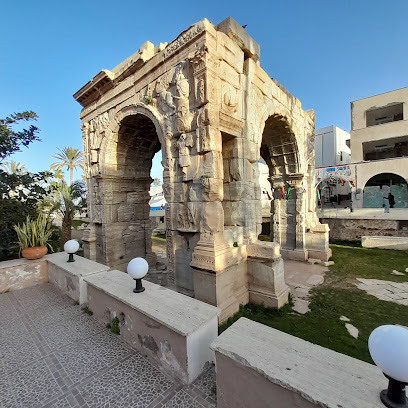
Sabratha Ancient Theatre
Experience the grandeur of Roman architecture at Sabratha Ancient Theatre, a UNESCO World Heritage site steeped in ancient history and culture.
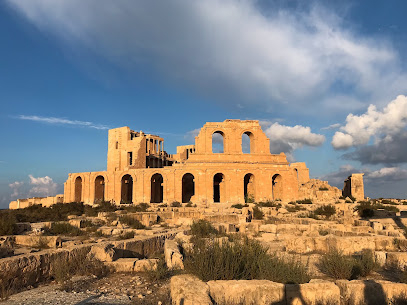
Ancient Sabratha
Discover the enchanting ruins of Ancient Sabratha, a UNESCO World Heritage Site showcasing the rich history and architecture of the Roman Empire.
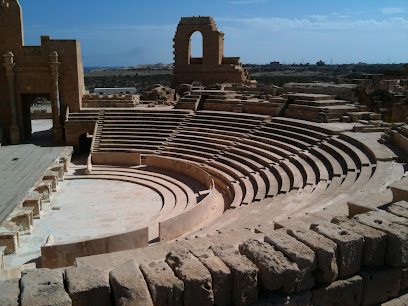
Sabratha Museum
Explore the ancient treasures of Libya at the Sabratha Museum, where history comes to life through stunning artifacts and captivating exhibits.
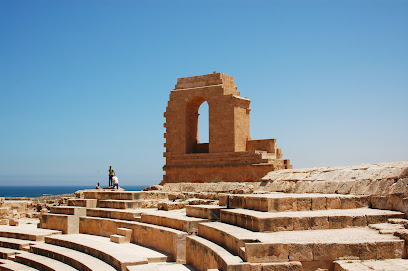
Basilica of Justinian
Explore the Basilica of Justinian in Sabratah, a remarkable historical landmark showcasing ancient Roman architecture and rich cultural heritage.
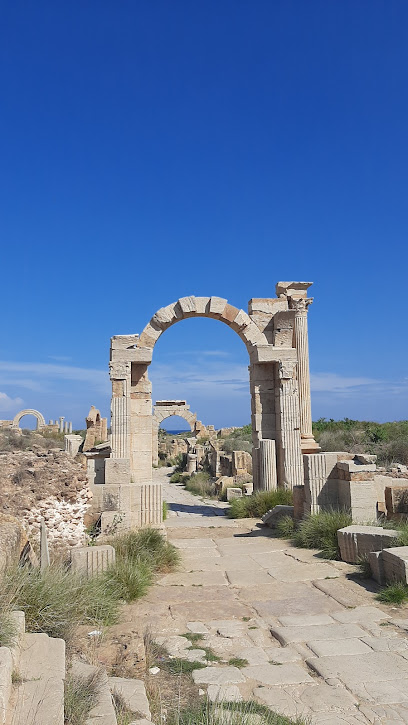
Mausoleum of Bes
Discover the ancient wonders of the Mausoleum of Bes in Sabratah, a captivating historical landmark that showcases Libya's rich cultural heritage.
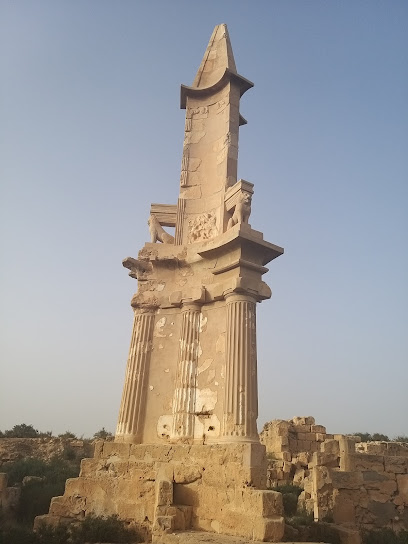
Roman Amphitheatre of Sabratha
Discover the ancient glory of the Roman Amphitheatre of Sabratha, a UNESCO World Heritage site showcasing stunning architecture and rich history.
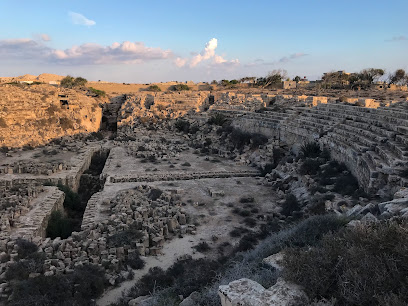
Golden barber shop
Discover the charm of Sabratah at Golden Barber Shop - where tradition meets style in a welcoming atmosphere.
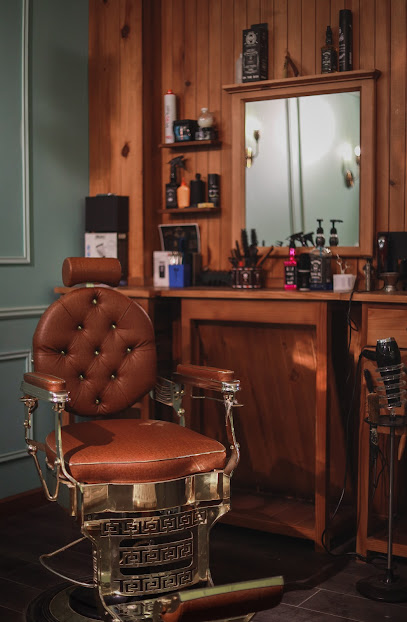
Temple of Liber Pater
Discover the ancient Roman heritage at the Temple of Liber Pater in Sabratah, a stunning historical landmark with breathtaking architecture and rich cultural significance.
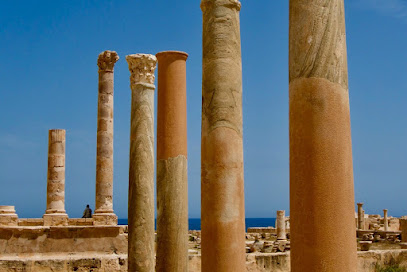
Punic Museum
Uncover the rich history of the Punic civilization at the Punic Museum in Sabratah, Libya, where ancient artifacts come to life.
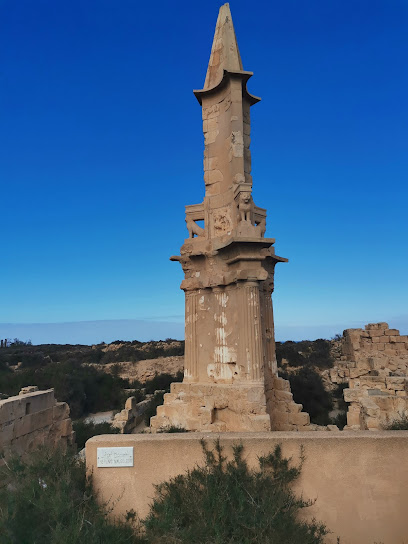
Peristyle House
Discover the Peristyle House, an architectural marvel in Sabratah that encapsulates the grandeur of Roman history and culture.
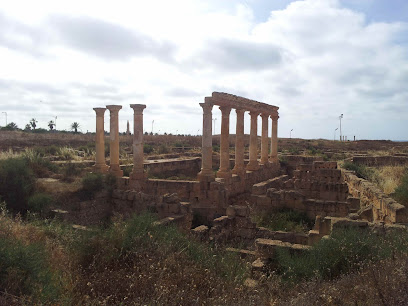
Sabratha Lighthouse
Discover the historical allure of Sabratha Lighthouse, a majestic landmark offering stunning views and rich maritime heritage along the Libyan coast.
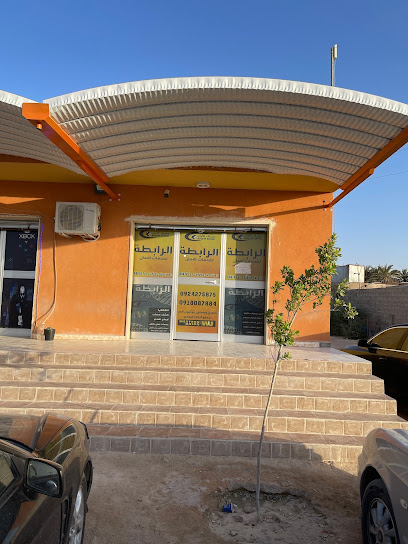
شاطي الفينيقيين
Experience the stunning coastline and rich history of Shati Al-Finikiyeen, a captivating landmark in Sabratah, Libya, perfect for every traveler.
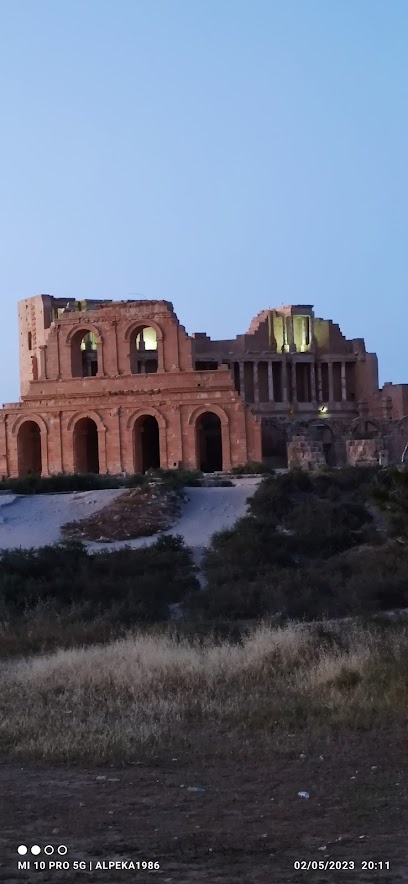
Temple of Serapis
Discover the captivating ruins of the Temple of Serapis, an ancient Roman landmark in Sabratah, rich with history and stunning architectural beauty.
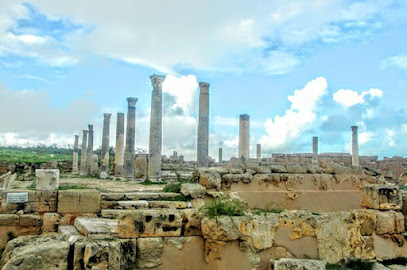
Ancient Sabrath
Unearth the rich history of ancient Sabrath, a UNESCO World Heritage site featuring stunning Roman ruins and a captivating archaeological museum.

Unmissable attractions to see
Sabratha Ancient Theatre
Explore the stunning Sabratha Ancient Theatre, a remarkably preserved Roman coastal landmark and UNESCO World Heritage Site in Libya.
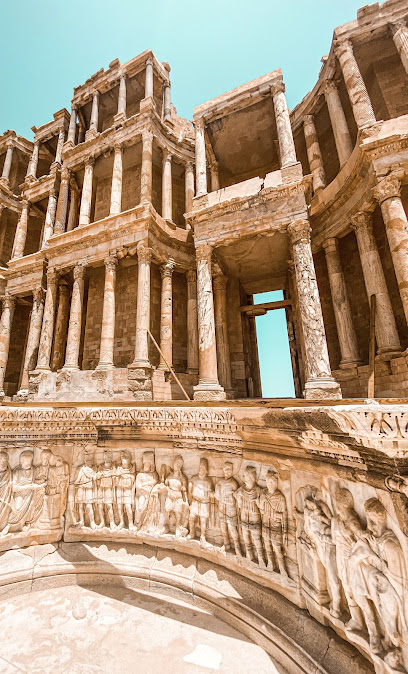
Sabratha Family Park
Escape to Sabratha Family Park: A serene oasis with lush greenery, playgrounds, and stunning sea views for family fun and relaxation.
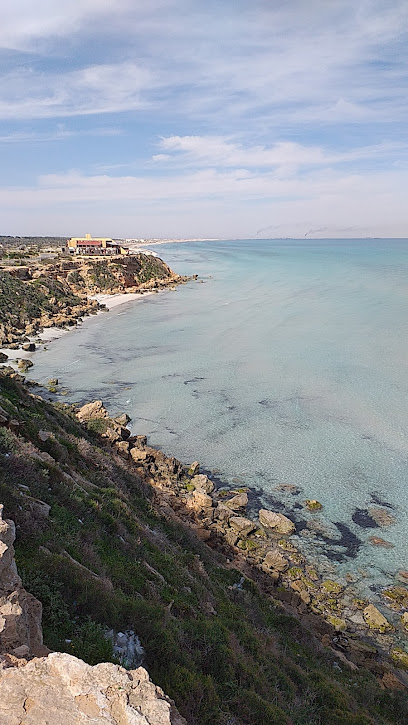
Sabratha Museum
Discover ancient Roman and Byzantine treasures at the Sabratha Museum, a gateway to Libya's rich cultural heritage.
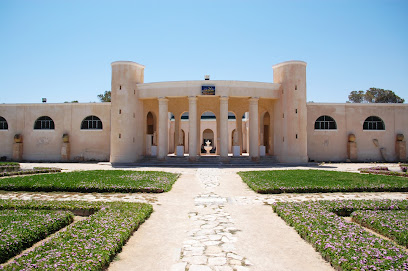
جزيرة النافورة
Discover جزيرة النافورة: A peaceful island escape near Sabratah with natural beauty and historical charm. Perfect for relaxation and scenery.
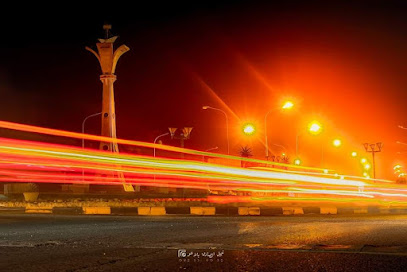
Punic Museum
Explore Sabratha's Phoenician roots at the Punic Museum, showcasing artifacts and history of this ancient civilization.
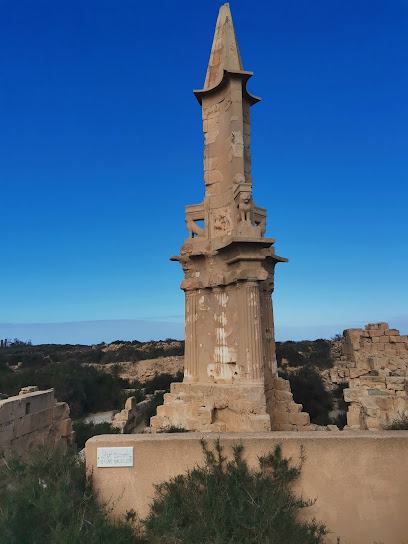
Ancient Sabrath
Discover Sabratha, Libya: An ancient Roman city with a stunning theater, temples, and mosaics on the Mediterranean coast.

Essential places to dine
المطعم التركي قصر الحمراء
Discover the rich flavors of Turkey at Alhambra Restaurant in Sabratah – where tradition meets taste in every dish.
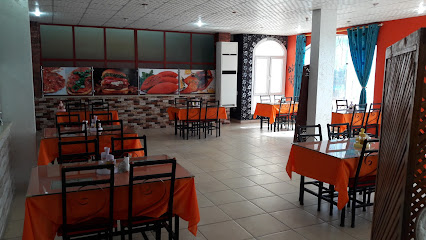
SABRA FASTFOOD RESTAURANT
Experience the essence of Turkey at Sabra Fastfood Restaurant in Sabratah, offering delicious kebabs and traditional dishes in a warm atmosphere.
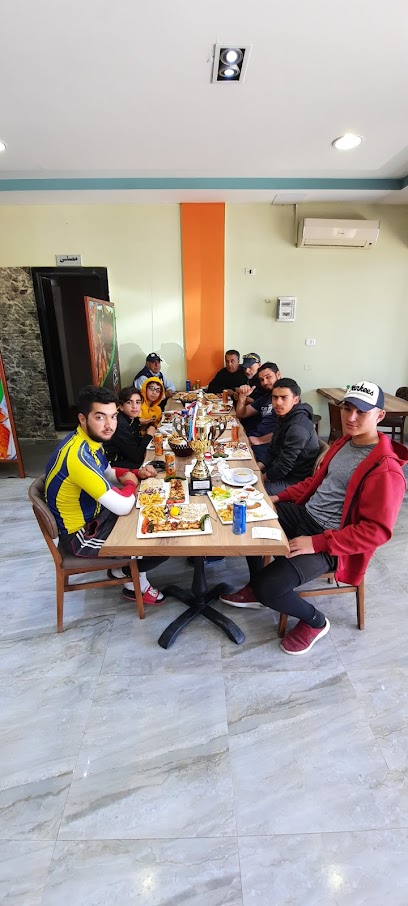
Cafe and Restaurant Ambassador
Savor authentic Libyan cuisine at Cafe and Restaurant Ambassador in Sabratah – where tradition meets taste in every dish.
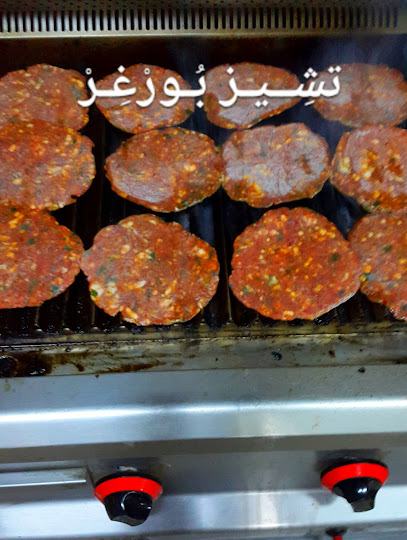
مقهي ومطعم متعة القهوة
Experience authentic Libyan flavors at مقهي ومطعم متعة القهوة in Sabratah - where delicious food meets warm hospitality.
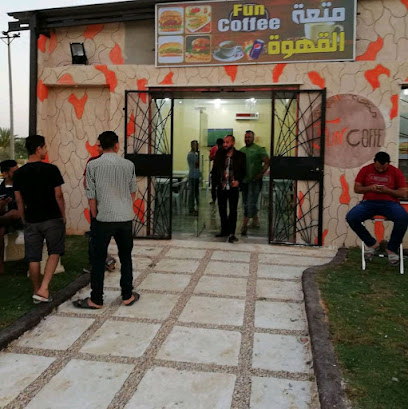
مطعم الروابي
Discover the flavors of Libya at مطعم الروابي – A family-friendly dining gem in Sabratah offering delicious local and international cuisine.
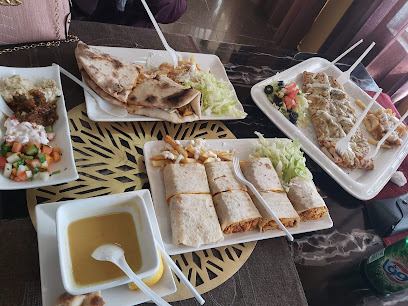
سابروسو - SABROSO
Experience authentic flavors at SABROSO in Sabratah – where local culture meets culinary excellence.

قصر المندي Kassar AL-mandi
Discover Kassar AL-mandi: A Fast Food Haven in Sabratah Offering Delicious Flavors and Unforgettable Dining Experiences.
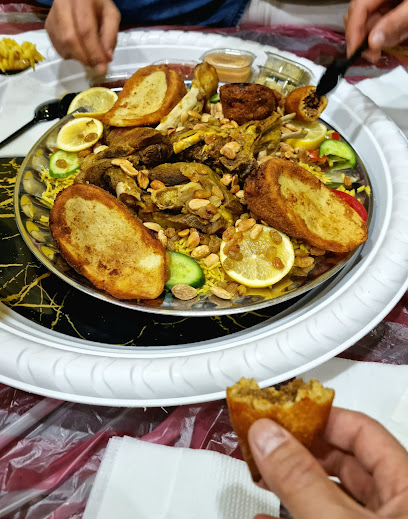
تازربو فاست فود
Discover the fusion of local flavors and fast food at تازربو فاست فود in Sabratah - a delightful stop for every tourist.

nutelachaf
Discover the authentic flavors of Libya at Nutelachaf, where traditional cuisine meets warm hospitality in Al Ajaylat.
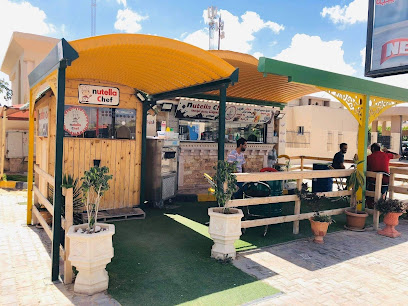
الفرن
Discover the taste of fast food at الفرن in صبراتة, where local flavors meet international favorites for an unforgettable dining experience.
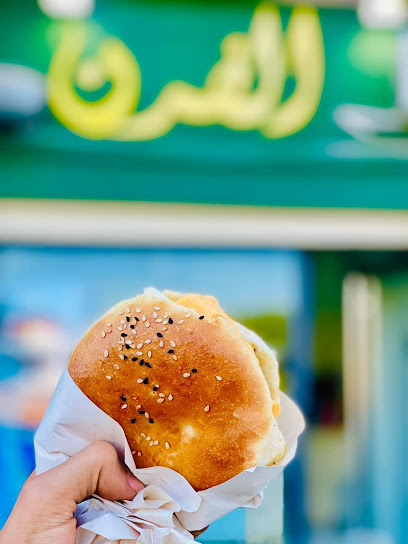
Apaćhe Fast Food
Discover delightful fast food flavors at Apaćhe Fast Food in Sabratah—where quick service meets delicious local cuisine.

King fast food
Experience the perfect blend of local Libyan flavors and fast food at King Fast Food in Sabratah.
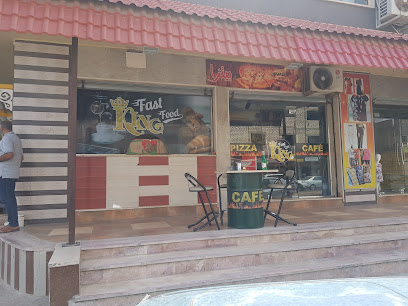
تشاركية الحراري للأكلات الشعبيه
Discover authentic Libyan flavors at تشاركية الحراري للأكلات الشعبيه in Sabratah – where every dish tells a story.
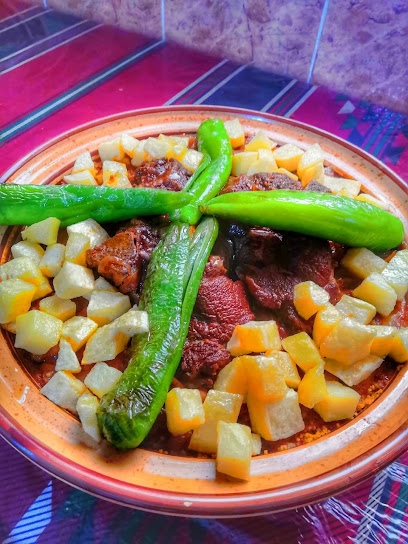
مطعم البتراء
Experience authentic Libyan flavors at مطعم البتراء in Sabratah, where every dish tells a story of tradition and taste.

كلاس فوود
Experience authentic Libyan cuisine at كلاس فوود in Surman – a culinary journey rich in flavor and tradition.

Markets, malls and hidden boutiques
صبراته مول
Discover Sabratah Mall, a shopping paradise in Libya offering a mix of local brands, international stores, and fun-filled entertainment for everyone.
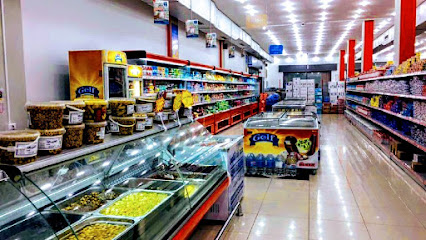
سوق البوادي
Discover the essence of Libyan culture at سوق البوادي, a vibrant supermarket in Sabratah filled with local flavors and unique goods.
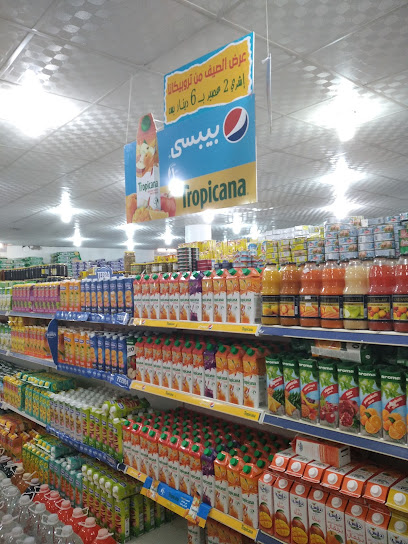
محل زواغه لتسوق
Explore the vibrant local flavors and essential goods at محل زواغه لتسوق, your go-to supermarket in Sabratah, Libya.
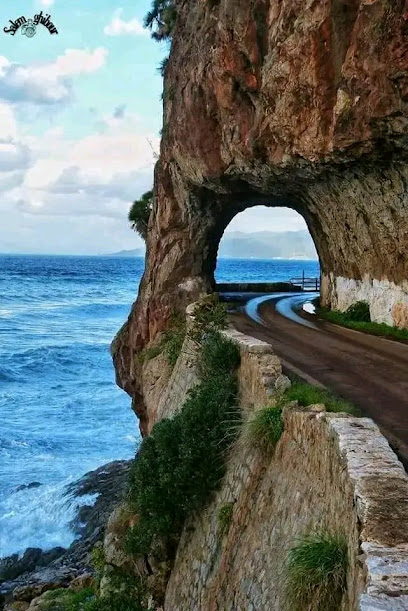
ياسين للتسوق
Discover the heart of Sabratah at Yassine Shopping, where local culture meets everyday shopping in a vibrant supermarket experience.

فكرة للورود وتغليف الهدايا وتزيين السيارات
Explore فكرة للورود for exquisite floral arrangements and unique gifts in Sabratah, capturing the essence of Libyan culture.

صبره للأثاث الجديد والمستعمل
Explore Sabratah's charming furniture store for unique new and used pieces reflecting local craftsmanship and culture, perfect for any home.

NOVA نوڤا
Explore NOVA in Sabratah for unique Libyan gifts and local crafts that reflect the rich culture and artistry of the region.
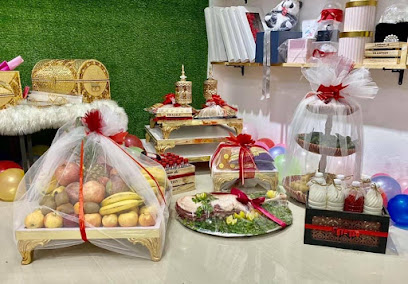
محل مواد غذائية كمال عبدالسلام
Explore local culture and flavors at Kamal Abdelsalam Grocery Store, a vibrant market in the heart of Sabratah, Libya.

تربعي على عرش الانوثة LSG
Explore femininity and elegance at تربعي على عرش الانوثة LSG, a premier clothing store in Sabratah showcasing the best of local fashion.

الكواش 1 للعبايات والاوشحة والشاربات والزي الشرعي
Explore elegant women's clothing at الكواش 1, offering exquisite abayas and stylish scarves in the heart of Sabratah.
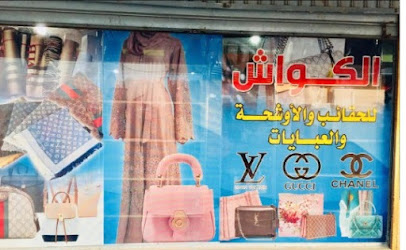
السنوسي للورود والهدايا
Discover unique souvenirs and floral arrangements at Al-Sanusi Gifts and Flowers in Sabratah, capturing the beauty of Libyan culture.
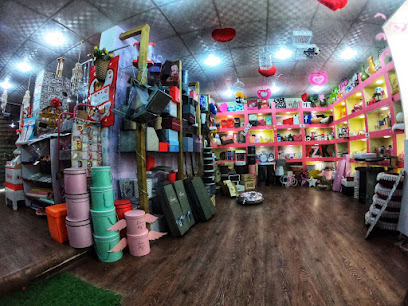
غذائية باب السلام دكان سوري
Experience the authentic taste of Syria at غِذائية باب السلام دكان سوري in Sabratah, where traditional flavors come alive.

متجر سحر العيون لمواد التجميل والعطور
Explore the enchanting Eye of Magic Perfume Store in Sabratah for a unique selection of fragrances and beauty products, reflecting the city's rich heritage.
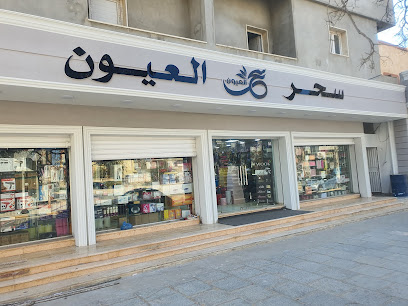
إيلاف للأحذية والحقائب
Explore the exquisite collection of footwear and bags at إيلاف للأحذية والحقائب in Sabratah, where quality meets local fashion.
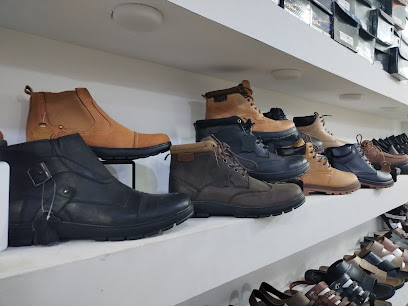
السوق الشعبي للسجاد والمفروشات
Explore the exquisite Sabratah Carpet and Furniture Market, a vibrant showcase of Libyan craftsmanship and culture, perfect for unique souvenirs and local experiences.

Essential bars & hidden hideouts
SABRA FASTFOOD RESTAURANT
Experience the authentic taste of Turkey at Sabra Fastfood Restaurant in Sabratah, where every meal is a celebration of flavor.
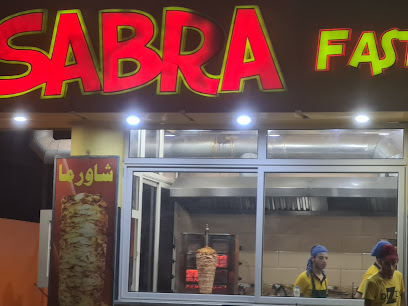
Coffee Khkoh
Discover the vibrant ambiance and diverse flavors at Coffee Khkoh, the premier hookah bar in Al Ajaylat, perfect for relaxation and socializing.
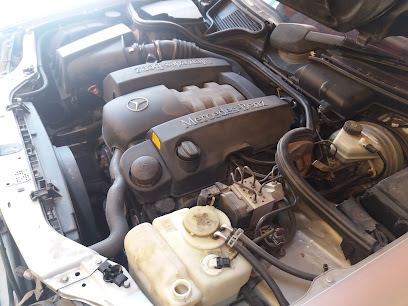
قاعة وايت دريم للافراح و المناسبات الاجتماعية
Experience elegance at قاعة وايت دريم, Sabratah's premier lounge and restaurant, perfect for unforgettable celebrations and exquisite dining.
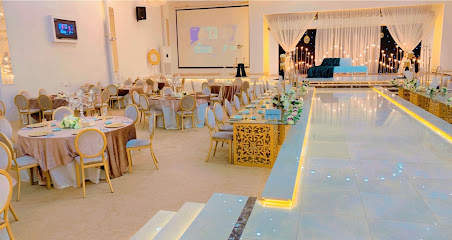
King fast food
Experience the taste of Sabratah at King Fast Food, where local flavors meet casual dining in a welcoming atmosphere.
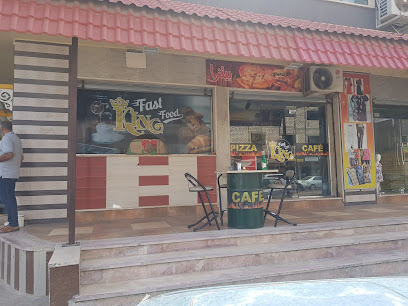
قاعة اورانوس للمناسبات
Experience the serene ambiance of قاعة اورانوس للمناسبات in Sabratah, a perfect escape for relaxation and social gatherings.

محل سجاير
Discover the vibrant atmosphere of محل سجاير, a lively bar in Bivo Green perfect for enjoying local drinks and socializing with friends.

صالة النصيب و الفرح
Discover the tranquil charm of Lounge Al-Nasieb in Surman, a perfect retreat for relaxation and local flavors in a cozy atmosphere.

صالة Butterfly للافراح
Experience the elegance of صالة Butterfly للافراح, a premier lounge in Al Ajaylat perfect for celebrations and cultural immersion.
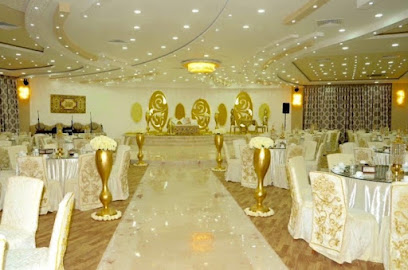
سلاخانة احمد الورفلي
Discover the authentic taste of Libyan cured meats at سلاخانة احمد الورفلي in Sabratah, where tradition meets flavor in a warm, inviting atmosphere.

محطه الشاحنات
Experience the vibrant nightlife of Al Ajaylat at the Truck Station Bar, where refreshing drinks and great company await.

حلا للحجاب
Experience traditional Libyan hospitality at حلا للحجاب, a cozy lounge in Sabratah offering authentic refreshments and a serene atmosphere.

متجر بيع تبغ
Explore Surman's Bar Tabac, a local tobacco haven where culture meets relaxation in the heart of Libya.

مقهى السويسري swis cafe
Experience the cozy ambiance and unique flavors at Swis Cafe, a must-visit bar in the heart of Sabratah, Libya.

Costa
Discover the vibrant ambiance of Costa Hookah Bar in Sabratah, where flavor meets culture in a relaxing setting.

Local Phrases
-
- Helloمرحبا
[Marhaba] - Goodbyeمع السلامة
[Ma'a assalama] - Yesنعم
[Naam] - Noلا
[La] - Please/You're welcomeمن فضلك
[Min fadlik] - Thank youشكرا
[Shukran] - Excuse me/Sorryعذرا
[A'ithiran] - How are you?كيف حالك؟
[Kayf halak?] - Fine. And you?بخير. وأنت؟
[Bikhayr. Wa ant?] - Do you speak English?هل تتكلم الإنجليزية؟
[Hal tatakallam al'inglizia?] - I don't understandأنا لا أفهم
[Ana la afham]
- Helloمرحبا
-
- I'd like to see the menu, pleaseأريد أن أرى القائمة، من فضلك
[Aridu an ara alqaimah, min fadlik] - I don't eat meatأنا لا آكل اللحم
[Ana la aakul allahm] - Cheers!صحتين
[Sahatayn] - I would like to pay, pleaseأود أن أدفع، من فضلك
[Aoudu an adfa', min fadlik]
- I'd like to see the menu, pleaseأريد أن أرى القائمة، من فضلك
-
- Help!النجدة!
[Alnajdah!] - Go away!اذهب بعيدا!
[Idhab ba'eedan!] - Call the Police!اتصل بالشرطة!
[Itsal bialshurta!] - Call a doctor!اتصل بالطبيب!
[Itsal bialtabib!] - I'm lostلقد ضللت
[Laki dalalt] - I'm illأنا مريض
[Ana mareed]
- Help!النجدة!
-
- I'd like to buy...أود أن أشتري...
[Aoudu an ashtari...] - I'm just lookingأنا فقط أتفرج
[Ana faqat atfarij] - How much is it?كم سعره؟
[Kam sa'ruh?] - That's too expensiveهذا غالي جدا
[Hatha ghali jiddan] - Can you lower the price?هل يمكنك تخفيض السعر؟
[Hal yumkinuk takhfid alsu'ur?]
- I'd like to buy...أود أن أشتري...
-
- What time is it?كم الساعة؟
[Kam alsaa'ah?] - It's one o'clockالساعة الواحدة
[Alsa'ah alwahidah] - Half past (10)العاشرة والنصف
[Al'ashirah walnusf] - Morningالصباح
[Assabah] - Afternoonالعصر
[Al'asr] - Eveningالمساء
[Almasa'] - Yesterdayأمس
[Ams] - Todayاليوم
[Alyawm] - Tomorrowغدا
[Ghadan] - 1واحد
[Wahid] - 2اثنان
[Ithnan] - 3ثلاثة
[Thalatha] - 4أربعة
[Arba'a] - 5خمسة
[Khamsa] - 6ستة
[Sitta] - 7سبعة
[Sab'a] - 8ثمانية
[Thamania] - 9تسعة
[Tisa'a] - 10عشرة
[Asharah]
- What time is it?كم الساعة؟
-
- Where's a/the...?أين الـ...؟
[Ayna al...?] - What's the address?ما هو العنوان؟
[Ma huwa al'unaan?] - Can you show me (on the map)?هل يمكنك أن تريني (على الخريطة)؟
[Hal yumkinuk an tureeni (ala alkharitah)?] - When's the next (bus)?متى يأتي الحافلة القادمة؟
[Mata yaati alhafilah alqadimah?] - A ticket (to ....)تذكرة (إلى ...)
[Tathkirah (ila ...)]
- Where's a/the...?أين الـ...؟
History of Sabratha
-
Sabratha was founded in the 5th century BC as a Phoenician trading post. The city was strategically located to serve as a bridge between the Mediterranean world and the African hinterland, facilitating trade and cultural exchange. The Phoenicians, known for their seafaring skills, established Sabratha as one of the key cities in their network of settlements along the North African coast.
-
In 46 BC, Sabratha was incorporated into the Roman Empire following the defeat of the Phoenicians. Under Roman rule, the city experienced significant urban development and became part of the Roman province of Africa Proconsularis. The Romans built grand public buildings, including a monumental forum, basilica, and an impressive theater that still stands today. The city’s infrastructure was enhanced with the construction of roads, aqueducts, and baths, reflecting the Roman commitment to urban planning and public amenities.
-
Following the decline of the Roman Empire, Sabratha came under Byzantine control in the 6th century AD. During this period, the city saw the construction of several Christian churches and the spread of Christianity. The Byzantine authorities fortified the city and repurposed many of the existing Roman structures for their own use. This era marked a significant shift in the religious and cultural landscape of Sabratha.
-
In the 7th century AD, Sabratha fell to the Arab Islamic forces. The city was gradually overshadowed by the rise of other prominent centers such as Tripoli. Over time, Sabratha's importance waned, and it eventually fell into a state of decline. However, the remnants of its grand past, including the well-preserved Roman theater and public buildings, continued to attract attention and admiration.
-
Sabratha remained relatively obscure until the early 20th century when archaeological excavations began to uncover its ancient splendors. Italian archaeologists initiated extensive digs, revealing the city's well-preserved Roman and Byzantine structures. These efforts shed light on Sabratha's historical significance and its role in the ancient Mediterranean world. Today, the archaeological site of Sabratha is a UNESCO World Heritage Site, attracting scholars and tourists alike.
-
Sabratha is not only a testament to the city's historical and architectural heritage but also a symbol of Libya's rich cultural tapestry. Efforts to preserve and protect the site are ongoing, with various international and local organizations working together to maintain its integrity. The city's ruins, with their intricate mosaics and grand structures, provide a glimpse into the lives of those who once inhabited this vibrant trade hub.
Sabratha Essentials
-
Sabratha is located in the northwestern part of Libya, along the Mediterranean coast. The nearest major airport is Tripoli International Airport, situated approximately 70 kilometers southeast of Sabratha. From the airport, you can hire a taxi or rent a car to reach Sabratha, which typically takes around 1.5 hours by road. Alternatively, some tour operators offer organized trips to Sabratha from Tripoli.
-
Once in Sabratha, you can explore the city and its surroundings by hiring a local taxi or renting a car. Public transportation options are limited, but there are minibuses (shared taxis) that can take you to nearby towns and cities. Walking is also a good option for exploring the archaeological site and the city center, as many attractions are within a short distance.
-
The official currency in Libya is the Libyan Dinar (LYD). Credit cards are not widely accepted, so it is advisable to carry cash for transactions. ATMs are available in Sabratha, but it is recommended to withdraw cash in Tripoli before heading to Sabratha to ensure you have enough funds for your stay.
-
While Sabratha is generally safe for tourists, it is important to remain vigilant and take standard precautions. Avoid walking alone at night and be cautious in less crowded areas. Petty crime, such as pickpocketing, can occur, especially in tourist areas. It is always best to stay aware of your surroundings and keep your belongings secure.
-
In case of emergency, dial 193 for police assistance and 191 for medical emergencies. Sabratha has a local police station and medical facilities, including a hospital. It is advisable to have travel insurance that covers medical emergencies. For minor health issues, there are pharmacies in the city where you can purchase over-the-counter medications.
-
Fashion: Do dress modestly, especially when visiting religious sites. Avoid wearing revealing clothing. Religion: Do respect local customs and traditions. Be mindful of prayer times and avoid interrupting worship. Public Transport: Do be respectful and considerate of other passengers. Don't eat or drink on public transport. Greetings: Do greet people with a handshake. A smile and a polite greeting in Arabic, such as 'As-salamu alaykum,' are appreciated. Eating & Drinking: Do try local delicacies and accept food offerings graciously. Don't refuse hospitality, as it is considered impolite.
-
To experience Sabratha like a local, visit the bustling local markets where you can buy fresh produce and traditional Libyan goods. Engage with locals, who are often friendly and willing to share stories about the city's history and culture. Don't miss exploring the ancient Roman ruins, including the well-preserved theater and the various temples and mosaics. For a unique experience, take a stroll along the Mediterranean coast and enjoy the beautiful sunset views.
Trending Landmark in Sabratha
Nearby Cities to Sabratha
-
Things To Do in Tripoli
-
Things To Do in Leptis Magna
-
Things To Do in Djerba
-
Things To Do in Zliten
-
Things To Do in Misrata
-
Things To Do in Sfax
-
Things To Do in Monastir
-
Things To Do in Sousse
-
Things To Do in Zurrieq
-
Things To Do in Mqabba
-
Things To Do in Rabat
-
Things To Do in Mdina
-
Things To Do in Mgarr
-
Things To Do in Marsaxlokk
-
Things To Do in Zejtun










